Understanding Docker Swarm: A Technical Introduction

Docker Swarm is a native clustering tool for Docker containers, enabling users to manage a cluster of Docker engines as a single virtual system. It simplifies deployment, scaling, and load balancing.
Step-by-Step Guide to Setting Up a Docker Swarm Cluster
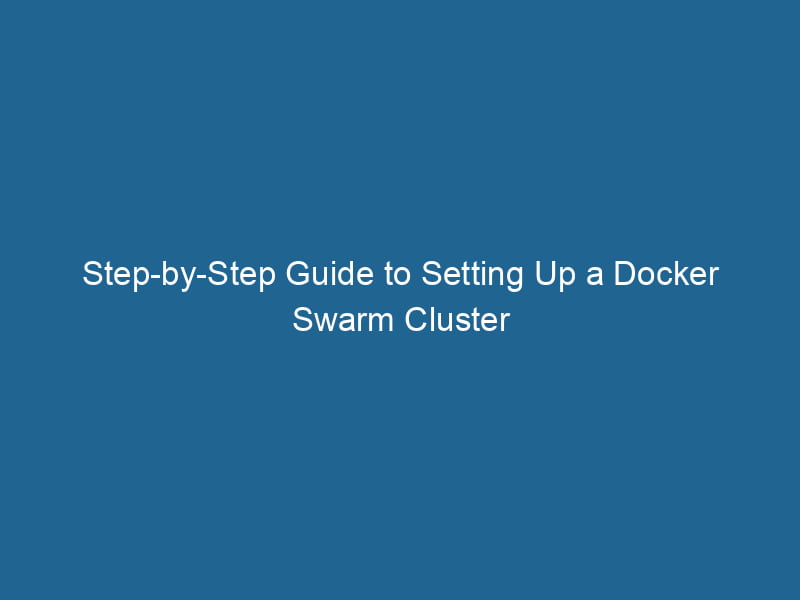
Setting up a Docker Swarm cluster involves initializing the swarm, adding nodes, and configuring services. This guide provides detailed steps to ensure smooth deployment and management of containerized applications.
Effective Strategies for Managing Nodes in Docker Swarm

Effective management of nodes in Docker Swarm involves deploying health checks, implementing resource constraints, and utilizing labels for task scheduling to optimize cluster performance and reliability.
Efficient Service Deployment Using Docker Swarm Techniques
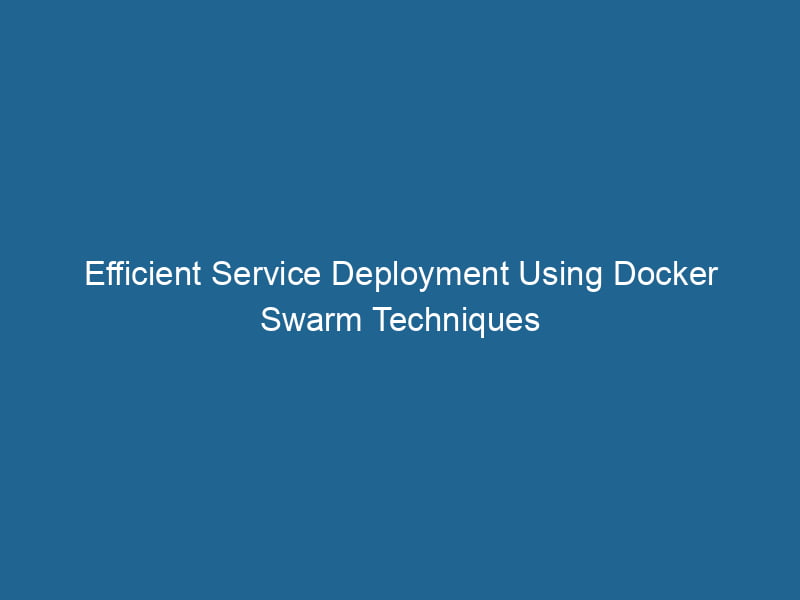
Docker Swarm simplifies service deployment by enabling clustering of Docker engines, providing load balancing and scalability. Its built-in orchestration streamlines container management, enhancing efficiency in production environments.
Efficient Strategies for Scaling Services in Docker Swarm

Scaling services in Docker Swarm requires a strategic approach. Utilize service replicas to manage load, implement rolling updates for minimal downtime, and monitor performance metrics to optimize resource allocation.
Implementing Secrets and Configurations in Docker Swarm
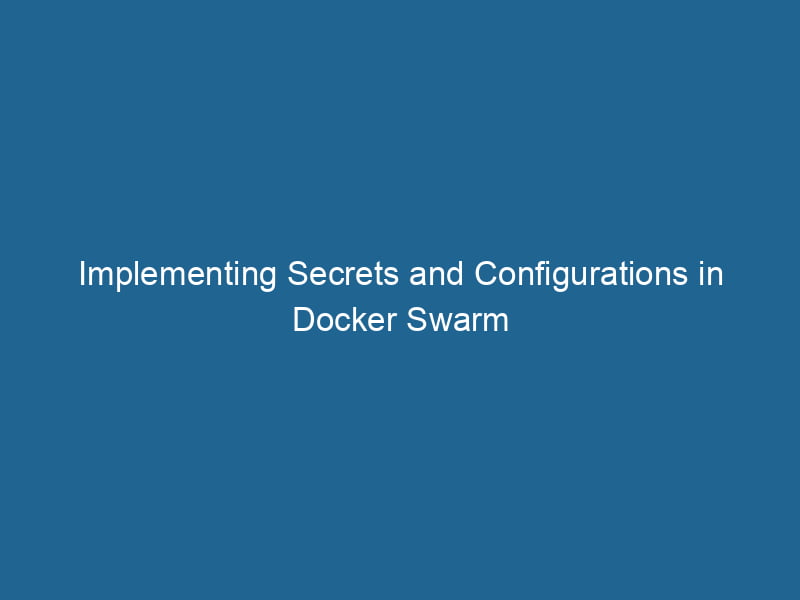
Implementing secrets and configurations in Docker Swarm enhances security and flexibility. By leveraging Docker Secrets and Configs, sensitive data and application settings can be managed efficiently across services.
Effective Strategies for Monitoring Docker Swarm Clusters
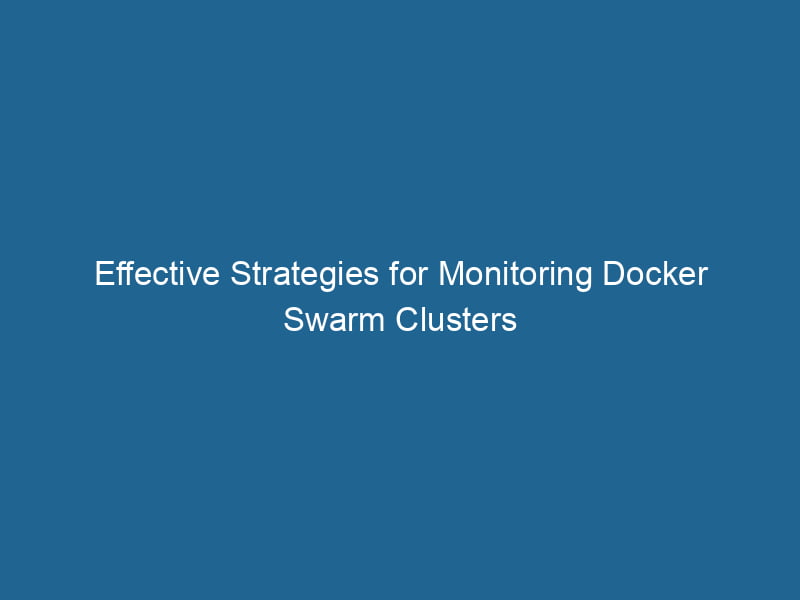
Monitoring Docker Swarm clusters requires a combination of metrics collection, logging, and alerting. Utilize tools like Prometheus for metrics, ELK stack for logs, and configure alerts to ensure cluster health and performance.
Effective Troubleshooting Techniques for Docker Swarm Issues
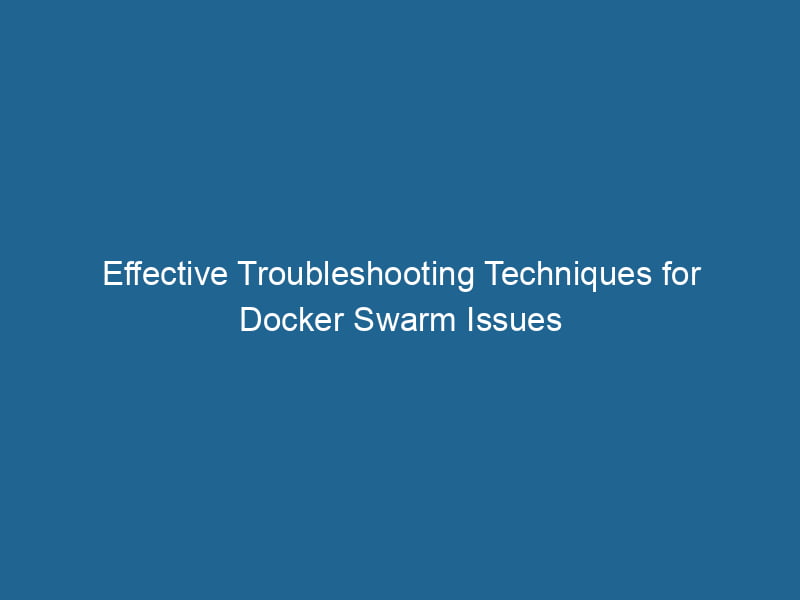
Effective troubleshooting in Docker Swarm involves systematic log analysis, service health checks, and network diagnostics. Utilize Docker commands and monitoring tools to identify and resolve issues promptly.
Exploring Advanced Features of Docker Swarm for Efficient Orchestration

Docker Swarm offers advanced orchestration features such as service scaling, load balancing, and rolling updates, enabling efficient management of containerized applications across clusters.
Essential Security Best Practices for Docker Swarm Deployments
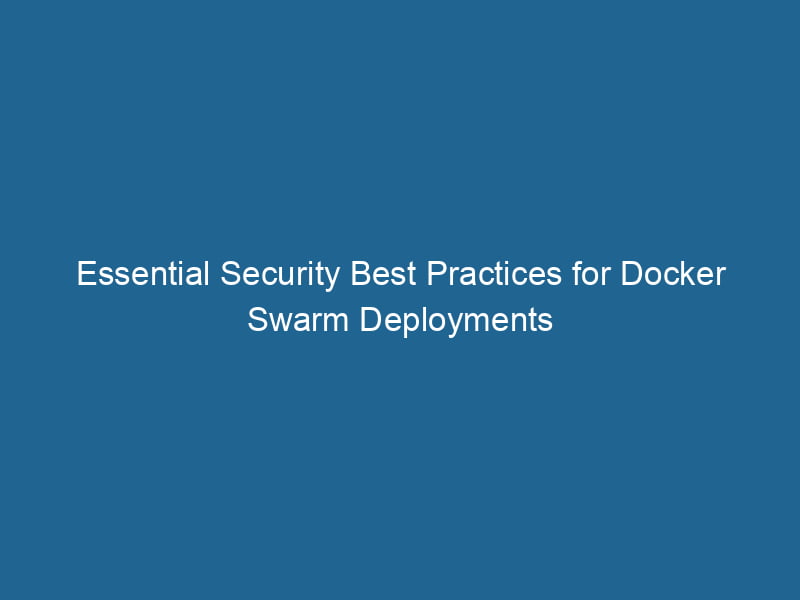
Implementing essential security best practices in Docker Swarm involves properly managing secrets, enforcing role-based access control (RBAC), and regularly updating images to mitigate vulnerabilities.
